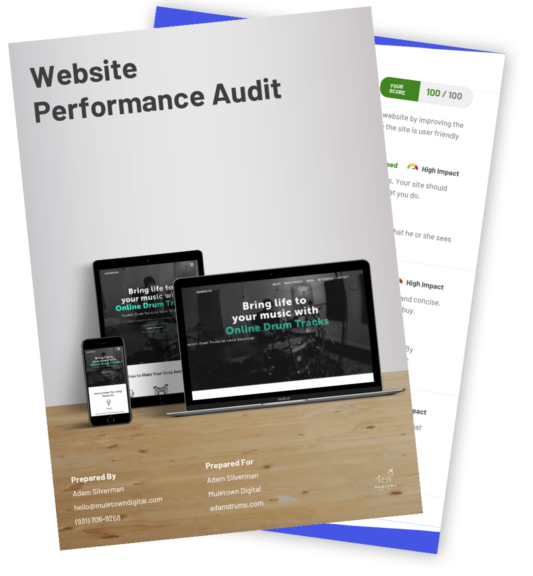
Why is the American Disabilities Act (ADA) important to understand as a business owner?
Here’s what you really need to understand about Web Accessibility Compliance and the legal ramifications of this on business owners. There have been laws in place for a very long time to protect people that are classified with disabilities in the United States and beyond. For many years those laws have stood in place to protect disabled people from being discriminated against in physical locations. Wheelchair ramps, elevators, swimming pool lifts, braille signs and things of that nature are typically what people think of when it comes to the ADA act.
The landscape of the law is moving quickly from physical locations to ALL business locations, which includes virtual locations. With the rise of dependence on technology and websites for day-to-day activities that are considered necessities of life (shopping, directions, information gathering, etc), there is a HUGE focus on making the internet a place where people are equal. So, a law that used to only impact businesses that had a physical location now applies directly to any business with a web presence. That means ALL businesses online have a virtual property that needs to be ADA compliant.
If you think about life before 2020 when Covid hit, you likely shopped online, you likely looked for businesses online, but think about how massively that pivoted when people could not freely move about. It made the internet an extremely important item for pretty much everyone in the world, almost instantly. People were ordering their groceries online, ordering their home supplies, looking for a local plumber, you name it… people started looking online for it.
That increased trend has led to an increased focus on these laws. Right now over 20% of our population has a disability. 20%. 1 in 5 people suffers from something that the US government would call a disability. Now, look at an internet where almost 98% of websites WILL NOT work for a user that needs a screen reader, joystick to navigate or has an inability to focus due to ADHD (just to name a few scenarios). There is a documented 1.5 billion people in the world roughly that have a disability. To top all of this off there has been a 300% increase in legal action taken by people with disabilities against businesses that do not have an ADA-compliant website space.
So, all websites in America according to the Department of Justice are “considered places of public accommodation”, and therefore it is discrimination to knowingly build a place of accommodation that does NOT accommodate 20% of the population.
So what does this mean? It ultimately means that if your business operates a website, it’s a place of public accommodation, and it is actually illegal for you to have a website that discriminates against people with any disability. We’re sure that nobody ever set out to discriminate, but by not having accommodations in place, your site falls into that category. Don’t worry… we have an easy solution which we’ll talk about shortly.

How does the WCAG impact these laws?
It’s important to understand that the WCAG which stands for “Web Content Accessibility Guidelines” by itself really means nothing. Basically, this is just a guideline written to help create rules for accessibility on websites.
Where this becomes HUGELY important is that the people that wrote the WCAG are called the “World Wide Web Consortium”. This is a worldwide known agency that has helped craft what we view as the internet in 2022. Because of that fact, most countries are looking to the WCAG to help them write laws surrounding ADA compliance. So basically, while not “law”, these guidelines are what the governments are using to create the law, which means, we need to pay VERY close attention to what they are saying.
Looking at what the WCAG is attempting to create, it’s actually extremely complicated, but it can be broken down into 4 groups of what matters to them. Perception. Operation. Understanding. Features or Robustness. It’s making sure that your website is able to be perceived, operated, and understood by ALL people.
It’s also seeking to build websites that are properly coded, and that have additional tools available for people with disabilities. This ensures that even with their disability, they are still allowed to have all of the features of the website and maybe some extras.
Imagine going to a hotel, and you can’t get to the restaurant to eat, but you’re able to order room service. Well, you’re still getting the food, but it’s not inclusive, it doesn’t afford you the same opportunity as someone else.
What if eBay made it impossible for a person with bad eyesight to bid on an item. Is that fair? Is that equal? 100% not, so when you’re thinking why does a website matter that it is “equal” these are some of the reasons why this is so important to the world.
So, the WCAG isn’t a set of laws that will be upheld, but they are building the foundations that lawmakers are going to be using to draft what a fair internet looks like when it comes to ADA compliance. It’s important to understand that these are just guidelines, but they play a massive role in how all of this is going to roll out in the coming months or years.
ADA Title III
The ADA stands again for the American Disabilities Act. This is a law that was put into place by both the George Bush presidents in the United States. The law was put there to stop the discrimination against a person that was based on their ability or their disability. It was set to make equal mostly physical locations. When we think of the law, we typically think about wheelchair ramps and such.
The part of the law that massively impacts our world on the internet is Title III. That one component changes the game for the internet by declaring a website to be a “public accommodation”. With that in place, it changes that law in a way where both retail stores and online stores MUST accommodate all people regardless of ability or disability. This is a really big deal!
One of the big things to understand is that it also changes what or who is considered disabled. It uses terminology referring to this as a “major life activity”. That phrasing was amended in Title III to say that major bodily functions are now included in the law. That’s digestive, respiratory., neurological, and other disabilities as “legal liabilities” under the law.
That means that a person with medically classified ADHD that visits your store, or your website, is considered disabled under this law. Think about that with the above stats – 20% of our country will qualify as “disabled” under this amendment to the law. So 1 out of every 5 people that visit your website is disabled – legally. And guess what, we are now required by law to provide compliance both in a physical space and online.
Who needs to be compliant with the law?
You might be thinking to yourself right now that this only matters if I’m a massive corporation. That is 100% NOT the case. The law literally says “Small and Medium businesses of all types”. Plain as day, simple as can be, and believe me, we’re seeing a rise in people taking note of this new requirement.
At the beginning of all of this, it was VERY unclear how this impacted websites, as there was no real way to show if a website was compliant or not. We still do not have this 100% down at the moment – but the DOJ in the USA is continually pointing to WCAG as the source for the law. So basically – we know that we need to follow WCAG in order to be compliant.
The Legality of ADA
We live in a time right now where even though the law is unclear – large public companies have lost lawsuits against plaintiffs in both private and class action lawsuits. You may remember the Dominos Pizza lawsuit that came up a while back. But now almost 85% of these lawsuits are filed against small and medium-sized businesses. They tend to be more focused on retail stores online, but retail or no retail, it’s still possible to be sued if your website is non-compliant.
Most of these lawsuits are being settled out of court, but still, think about losing $50,000 out of your business, that’s just a terrible thing to experience. On the other hand, think about the opportunities that your business is missing by being NON-compliant to people with disabilities. In the world that’s over $20,000,000,000 (BILLION) per year in sales and currency by businesses found online that you do not have access to.
Points
- Being an ADA-compliant business is important to you as a business owner primarily because you’re doing the right thing to make the internet a fair and equal place for ALL. That is honestly the primary reason that we started looking into ADA law – it was the heart of the matter for us at Muletown Digital. We’ve been watching this and looking at tools to solve this problem long before there was a lawsuit in the public.
- You have the potential for lost customers and revenue if you do not cater online to the 20% of the world that has a disability. That’s a lot of potentially lost business. I have a friend who uses a screen reader, one of the children of one of our team members navigates with a joystick, if they can’t find you online and use your website, you’re just another business that leaves them out. Let’s not be those people!
- You can be sued by someone who isn’t able to use your website. And most of those lawsuits are likely with businesses the same size (or smaller) than your business.
- Muletown Digital can also be sued if we’re providing website support or maintenance for your business. Because we are responsible for the online presence of all of our clients, it’s now up to us to help get businesses compliant with the law.
What can we do to become compliant?
Fortunately, we have found an amazing website compliance partner in Accessibe. We’ve been looking at tools for nearly 2 years now and finally have found something that we feel comfortable sharing with our customers.
We feel so fortunate to call them a partner in this space. We’ve been compliant with ADA for quite some time now, and the tools really work exceptionally well. You can see a video below of the tools in action on the Muletown Digital website. This is a game-changer for our clients, this is a game-changer for any business out there!
For a limited time, our team will do the build of their toolset and install it for completely FREE. The price for you is their standard pricing, which for most of our clients would be about $490/year OR $49/mo That is constant compliance with the law (actually above and beyond).
Our agency will set everything up for you – you enter your payment information into their portal, we install it and maintain it, and you have compliance on your side, there’s nothing else you have to do. Think about that running about $1.35/day to make the internet safer, fairer, and better. To expand your business reach to ALL the potential clients out there. To protect yourself from lawsuits that are completely unnecessary.
Get Started with ADA Compliance Remediation Today!

The Alternatives
If you choose to handle compliance on your own, we can tell you from experience, it’s extremely costly. Every year new hidden website tags (code) are being created for Aria devices (screen readers, joystick navigation, etc). You have to build in things like user-chosen color adjustments, contrast adjustments, and focus modes, and you have to be constantly testing.
Most development teams out there run around $150/hr for a good team (unless you’re on our Care Plans currently 🙂). You’ll spend at least 10-15 hours up-front to get some of these fixes in place, you still won’t be compliant, but you’ll have made an attempt at it. You’ll constantly have to test for ADA compliance, then you’ll be paying for blocks of hours to update, and with the laws changing and the speed at which the internet and code change, you’ll be updating this stuff monthly. There’s no possible way to manually compete with a dedicated provider like Accessibe.
At Muletown Digital, we do code in a way that favors ADA compliance, but we can’t promise it without the use of a tool like this. If the internet law standard is WCAG 2.0 and we’re compliant with 2.1, it is HIGHLY unlikely you could be sued. Someone could try, but you can prove that you’ve spent money to be compliant, which means you’re attempting to follow the law, and that suit would not be able to proceed.
Tax Benefits
The IRS has issued a tax credit for businesses that work to “Improve Accessibility” – so if you sign up for this through our partnership – we can show that you’ve spent money to be accessible under the ADA laws. That means that you will be able to apply for a tax credit for the improvements, making it almost cost-free really to do this. That’s such a big deal! It proves that the goal here is 100% NOT to penalize business owners, the goal is a fair internet for ALL, and to do that, this is a big step in the right direction!
You can learn more about the tax benefits online by downloading this PDF resource from Accessibe. We are obviously not tax accountants or lawyers, but it does look like an avenue that we will pursue as a business and we believe that you should as well!
Conclusion
At the end of the day, Muletown Digital believes as a company that it’s VERY important to provide a fair and equitable space on the internet for ALL people. We believe that our community and clients should participate in this mission. For about $1.35/day, it feels like that’s not much to reach more customers, provide equality, and protect your business from legal issues and fees. Let’s stand together to make the internet a better place! Thank you!



